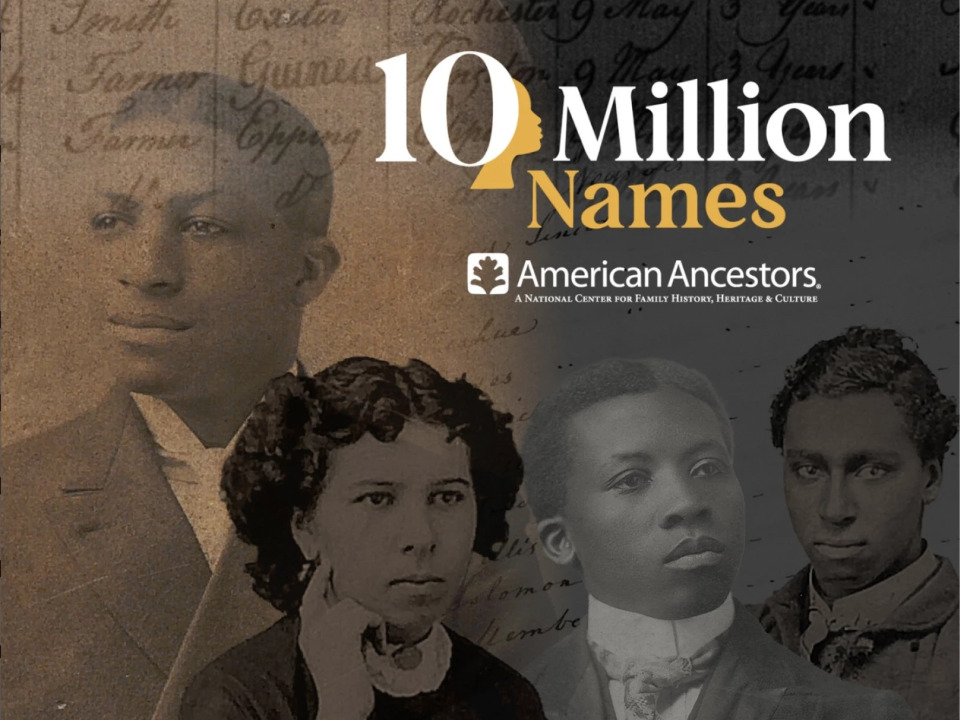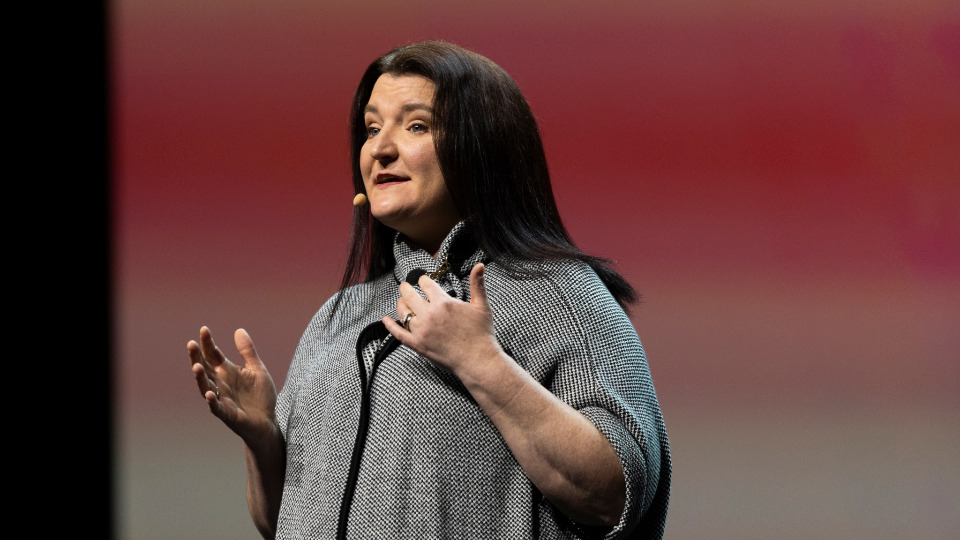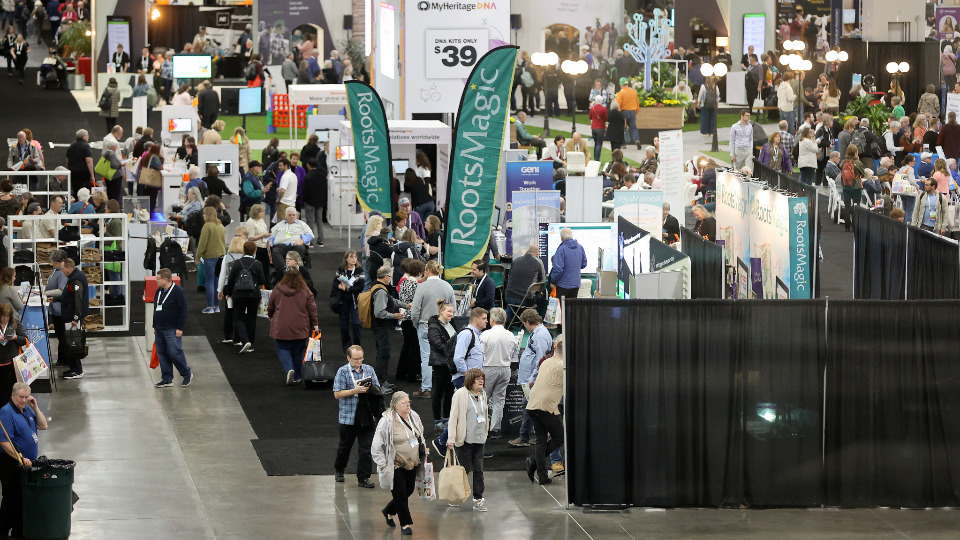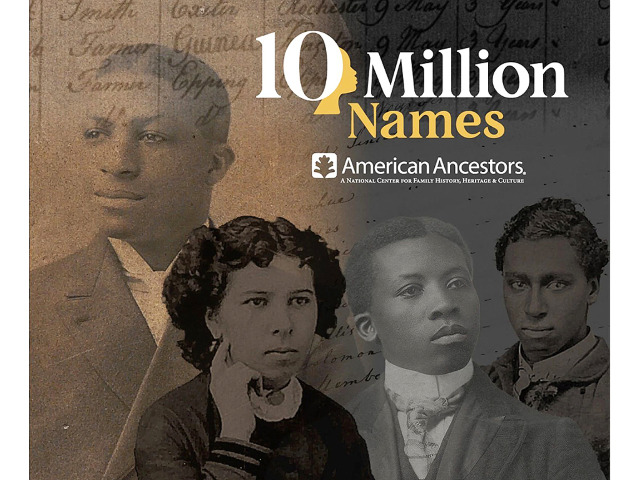
This story appears here courtesy of TheChurchNews.com. It is not for use by other media.
By Kaitlyn Bancroft, Church News
Over 44 million people of African descent live in the United States, and they’re likely to encounter difficulty doing their family history work.
It’s one of the many terrible consequences of slavery, which often split families and obscured records, said Lindsay Fulton, vice president of research and library services for American Ancestors.
Now, there’s “unequal access to family history” within African American lines, Fulton said. But her organization is trying to change that.
In August 2023, American Ancestors launched the 10 Million Names Project: an initiative seeking to restore the identities of the estimated 10 million people of African descent who were enslaved in pre- and post-colonial America.
FamilySearch announced its involvement with the project on February 15, 2024. And on Friday, March 1, while speaking during the RootsTech conference, Fulton shared an in-depth look at the initiative’s goals and resources.
“Slavery separated people from their names and their family histories,” Fulton said. “But there’s incredible power in names. Names are a source of empowerment and identity. ... Knowing where you come from has a profound positive, emotional, psychological and social impact.”
RootsTech is the largest family history conference in the world. This year, the global event took place in-person at the Salt Palace Convention Center and online from Thursday, February 29, to Saturday, March 2.

What is the 10 Million Names Project?
The 10 Million Names Project is a “historic initiative” that will use both individual family histories and historical documents to build a free, searchable database of information about enslaved African ancestors that encompasses the Transatlantic Slave Trade period from the 1500s to the 1800s, according to a news release.
Fulton said she’s sometimes asked how the “10 Million” number was estimated. She shared a variety of records showing that about 400,000 Africans were brought to America before 1808. Then, throughout the period of time that slavery existed in the U.S., about 5.6 million people of African descent were born and died in America. Finally, about 4 million people were emancipated in 1865 when Congress passed the 13th Amendment.
“So you add all that up and we get to about 10 million, [though] I’m sure that number is going to be a little bit higher once we start to discover all of the names,” she said.
To aid the project, FamilySearch is sharing its “groundbreaking” artificial intelligence and technology solutions to help identify enslaved persons from its millions of freely searchable historical records — the largest source of records for African Americans of any organization in the world, according to the news release. FamilySearch will also help 10 Million Names identify, digitize, transcribe and publish new, previously unavailable collections.
Additionally, 10 Million Names will use a network of professional genealogists, cultural organizations and community-based family historians for a research approach different from the standard methods used by genealogists: rather than starting with living individuals and working backward to ancestors, they’ll start with ancestors and move forward to living individuals.
Fulton said this approach developed as genealogists tried to work around “the 1870 brick wall,” which marks the first federal census post-emancipation and the first census to include the names of people who were previously enslaved. Slave schedules of the 1850 and 1860 censuses referred to slaves only by tick marks, gender and age, meaning that “connecting the people identified in 1870 to their pre-emancipation identities is a notoriously difficult challenge,” according to the National Genealogical Society.
But by starting with ancestors and tracing family lines forward, genealogists have much higher success rates, Fulton said. For instance, American Ancestors helped with the Georgetown Memory Project, which looked at 272 people sold by Georgetown University to two Louisiana plantations. Initially, it seemed that there wasn’t much information on these people beyond a widely held belief that most of them died on the way to or in Louisiana.
American Ancestors, however, thought that belief didn’t add up. So genealogists began tracing the enslaved people’s children, grandchildren and so on — until they discovered 8,000 descendants of those original 272 people.
“So we know ... this methodology works. We’re just going to do it for 10 million people instead of 272,” Fulton said.

How to Get Involved
Fulton said American Ancestors is “well aware” that they’re not the first tackle this kind of work. That’s why the 10 Million Names project hopes to collaborate with as many people and organizations as possible, she said, and amplify the voices of those who have been telling their family stories for centuries.
“We want to bring everyone together. We want to be the central hub for folks to come and do research,” Fulton said. “And then, ideally, we [will] point folks to other organizations that are doing this work.” She encouraged any organization that wants to get involved in 10 Million Names to contact them through their website at 10millionnames.org.
She also asked for donations — and not the monetary kind.
“We are pleading with everyone in the United States to look through what they have and donate to us,” Fulton said. “Bible records, family papers, genealogical notes ... oral histories, family reunion packets. Anything that you have that you think would be beneficial to this project, we would like to see it.”
To share documents with the 10 Million Names project, visit 10millionnames.org and click on the large tile that says “Help 10 Million Names Research.” From there, users will be prompted to choose which type of record they’re submitting before receiving further submission instructions.
Fulton emphasized that people don’t have to donate physical items. Rather, American Ancestors is working with local archivists and historians to help people create archival quality scans, which are then submitted to 10 Million Names to become part of a searchable record.
And if someone wants to get involved but doesn’t have records to donate, Fulton encouraged them to contact volunteer coordinator Danielle Rose at 10MN@nehgs.org. Volunteers do everything from digitizing images to entering historical document information into spreadsheets to proofreading data, according to the project’s website.
“I guarantee we’ll find something [for you to do] if you want to help,” Fulton said.
Copyright 2024 Deseret News Publishing Company.
